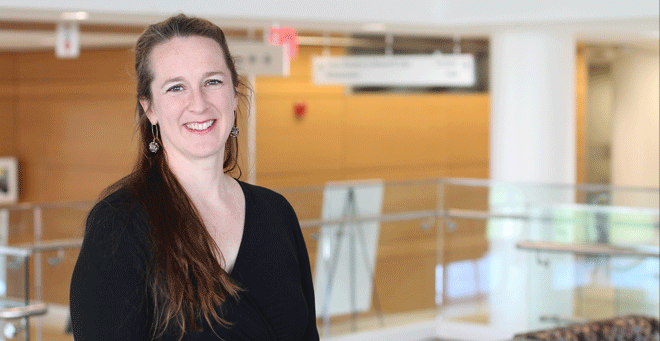 |
|
|
Joyce McIntyre, MD |
Clefting of the lip and palate, which are disfiguring and potentially life threatening if left untreated, are the most common craniofacial birth defects worldwide. But while many American plastic surgeons volunteer to perform cleft repairs on international medical missions, insights into their methods and results have not been compiled until now. New research from UMass Medical School craniofacial surgeon Joyce McIntyre, MD, takes a critical look at the practice.
“It’s very common for plastic surgeons to go on medical missions in developing countries—but no one has ever asked plastic surgeons where they go and what they do,” said Dr. McIntyre, assistant professor of surgery. “There’s an overlap of trips to some locales, while not as many are made to areas where the need is greatest, such as rural sub-Saharan Africa.”
Dr. McIntyre will present findings from a survey that asked American plastic surgeons about their experiences on international medical missions at the annual meeting of the American Society of Plastic Surgeons taking place in Boston on Saturday, Oct. 17. The first-of-its-kind study was conducted with support from the society and its Volunteers in Plastic Surgery subcommittee, under whose auspices a comprehensive, validated survey tool was disseminated to society members. The survey had three arms—surgeons who have volunteered abroad recently, those who volunteered more than five years ago, and those who have never gone on volunteer medical missions—in order to ensure broad-based, unbiased input and facilitate multivariate analysis.
“We asked questions about what types of cases these surgeons were performing, their collaboration with local surgeons, follow up and general compliance with safety guidelines laid out by the society,” said McIntyre. “Interestingly, 25 percent of respondents had seen a death or major complication on an international trip, unusual because cleft surgery done well is overall a very safe procedure. Our goal is to understand more about the quality and type of care given on these trips.”
McIntyre, a School of Medicine graduate who completed her plastic surgery residency here as well, , coauthored the study in collaboration with Amanda Gosman, MD, associate clinical professor of surgery and director of pediatric plastic surgery at the University of California in San Diego, where McIntyre completed her fellowship in craniofacial and pediatric plastic surgery.
“If the plastic surgery community has a better understanding of what is actually happening on international volunteer trips, our specialty can be at the forefront of improving the quality of care provided to the world's neediest patients,” they wrote in the project summary for “Current Practices in Plastic Surgery and Global Health: Comprehensive Survey of American Society of Plastic Surgery Members Assessing Clinical and Educational Outcomes, Including Safety and Quality, on International Surgical Trips.”
“Expanding access to safe surgery, whether it be for cleft repair, burns, trauma or other emergencies, is a current priority for the World Health Organization and the next big area of focus for major funders like the Gates Foundation,” said McIntyre. “The plastic surgery faculty here at UMass has an incredible amount of clinical and international experience in the field of pediatric and adult craniofacial disorders. The research we are doing at UMMS about international surgical trips is making a real difference in how patients in the neediest parts of the world receive care and how young surgeons are educated.”
Related links on UMassMedNow:
Winter Ball raises $175,000 for ‘miracles’ at Craniofacial Clinic
Teen receives Plastic Surgery Patients of Courage award
Telegram features ‘Grow a beard, get a smile’ campaign for craniofacial clinic